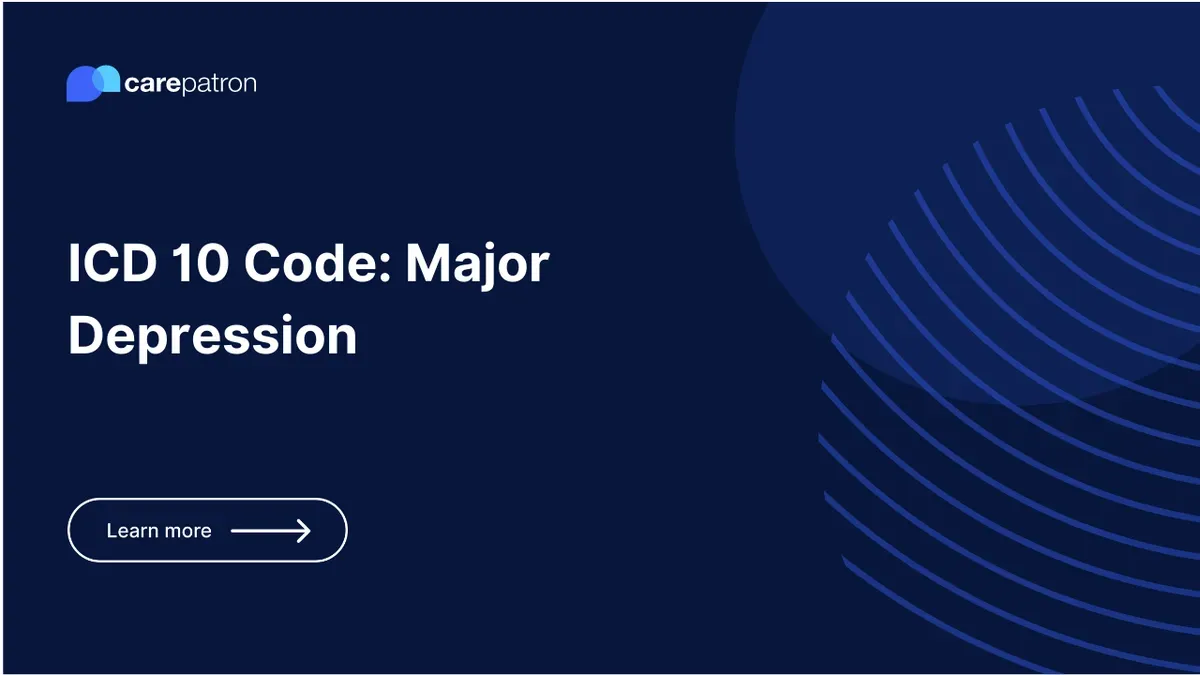
ICD-10 Codes for Major Depression
Understand the key ICD-10 codes used for diagnosing Major Depression, their clinical descriptions & the implications for treatment and billing with Carepatron.
Use Code
EHR and practice management software
Get started for free
*No credit card required
Free
$0/usd
Unlimited clients
Telehealth
1GB of storage
Client portal text
Automated billing and online payments
